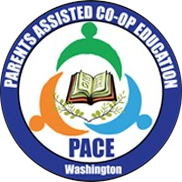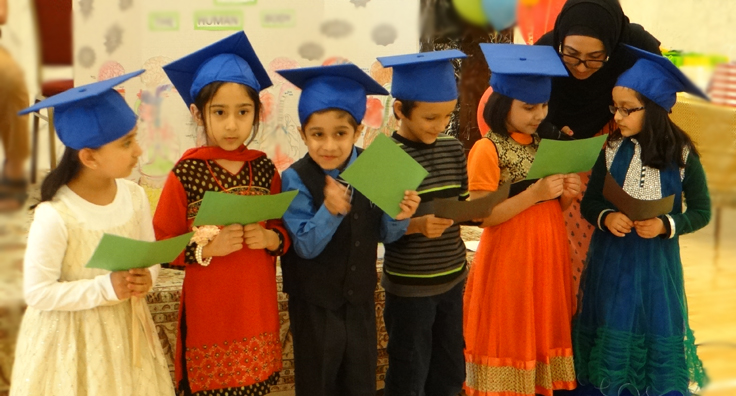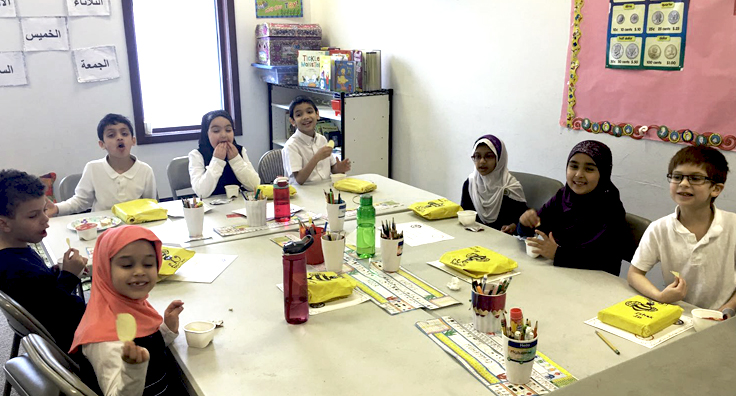First grade is traditionally thought of as the level where children learn to read. Not all children become fluent readers by the end of the first grade, but most take their first solid steps toward fluid reading. Their reading material varies from simple rhymes, to classroom news, to patterned stories and beginner non-fiction books. By the end of the year, most are reading grade-level chapter books and some are reading at even more advanced levels. First graders love true stories of long ago, even though their sense of time isn’t well developed.
First-grade teachers help children listen for sounds in words, write the sounds they hear, and discover parts of written language, like the –at in cat that they can then use to figure out the words hat, mat, and sat.
Writing, like reading, takes a variety of forms in the first-grade classroom. Children “invent” their spellings as they work out their understandings of written language. Writing activities include journal writing, writing creative stories, or documenting their work in other subject areas. Teachers frequently ask children to sound out the words they write to introduce the sounds that letters make.





